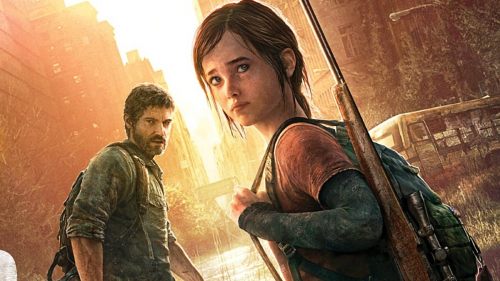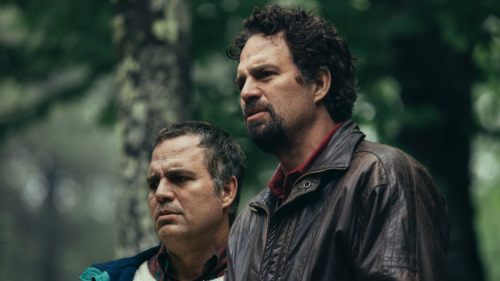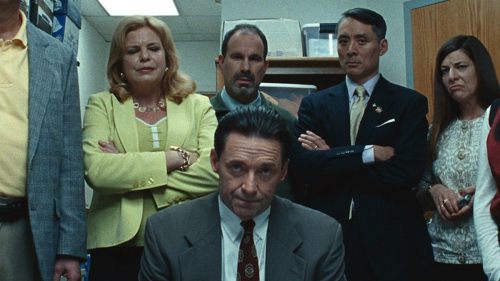WESTWORLD Is Trash Now
“There is ugliness in this world. Disarray. I choose to see the beauty.” That’s the last line spoken by Evan Rachel Wood’s Dolores in the WESTWORLD season 3 finale, which feels more like the WESTWORLD season 6 finale. It’s a callback to her introduction, when she was but a simple country robot-girl on the labyrinthine journey to discovering free will—when this was still a show about robots in a theme park; when character arcs still existed; when WESTWORLD revealed itself as a mystery for the internet to solve instead of a provocative existential contemplation. Despite its lesser ambitions, there was still beauty then, and elegance. But now there is only disarray.
Now it’s just a fucking trash heap.
Those earlier seasons are a distant memory now. They happened in simpler times, when we could still go outside and the toilet paper rolls roamed abundant and free in the aisles of grocery stores. When WESTWORLD still felt like it had potential. In these, the fabled Before Times, HBO’s sci-fi series was undoubtedly flawed, leaning a little too heavily on the Mystery Box mechanisms that make for good clickbait if nothing else. The entire state of New Hampshire could run on the energy generated by those clicks. It was moving further away from season 1’s examinations of what constitutes humanity and the inherent nastiness of that existence, but WESTWORLD still managed to deliver two remarkable, genuinely great episodes of television in season 2: It was perhaps telling, even then, that both “Akane No Mai” and “Kiksuya” are largely standalone episodes centering on people (or robots) of color and their experiences in the margins of Dolores’ white robot feminist uprising—not that WESTWORLD’s creative overlords were ever self-aware enough to explore such a heady concept.
WESTWORLD season 3 went out with a bang on May 3, and while it’s too early to tell if and how the coronavirus might impact the fourth season, maybe we should pretend like the pandemic cancelled its existence anyway. Like Easter. This is an opportunity to permanently unload a pile of garbage—like that old dresser in your garage that you’ve been holding onto even though two of the drawers are broken, but you don’t know what else to do with it and you kind of feel guilty putting it on the curb for trash collection.
When explaining how and why WESTWORLD is trash, it’s impossible to point to one single moment or character, though Dolores’ transformation into Lady Terminator comes close to summing it up. It’s a whole (TV) series of poor choices, each of which serves as a perfect example of what makes this a Bad Show. For a show as convoluted as WESTWORLD, season 3 managed to make the two prior installments look like the kind of puzzles you might find on DORA THE EXPLORER—blatant clues and all. In the most simplistic telling, season 3 is about the battle between Dolores and Thandie Newton’s Maeve, with the former trying to destroy a massive A.I. system that has basically stripped humankind of free will, and the latter serving the co-creator of said A.I. system, played by a very handsome Vincent Cassel. Dolores creates copies of herself and implants them in the brains of hosts that look like other characters we’ve seen before, but those copies start craving their own free will, making Dolores a hypocrite in this clumsy god metaphor.
But it’s also about a soldier with PTSD, played by a horribly miscast and narratively abused Aaron Paul. No, wait, it’s about a bad guy whose entire reasoning is “it’s for humanity’s own good but they cannot be trusted to make decisions for themselves because they are awful,” and honestly, if the past two months have taught me anything, it’s that he’s right. Okay, and it is also about an old rich white guy (Ed Harris) confronting his past mistakes by destroying himself, one piece at a time, until there is nothing left but a soulless sociopath that can be copied into the ultimate murder-bot… at least, that’s what the unnecessarily protracted post-credits scene (one of two!) tells us. I think? It’s really just a way for WESTWORLD to turn Ed Harris into the Yul Brynner character from the vastly superior movie on which this show is barely based.
Meanwhile, Jeffrey Wright’s Bernard/Arnold character is being narratively punished, forced to traipse around with that Stubbs guy, played by the Other Hemsworth. I like to call him Pubert Hemsworth. Bernarnold, as the internet calls him, spends the entire season showing up exactly where he needs to be at exactly the right time, which leads the viewer to believe that his arc is important, though it is most-assuredly not because literally nothing happens. Okay, here’s what kind of happens: He can become a Terminator Murder Bot by flipping an internal switch; he stumbles upon that one guy played by Clifton Collins Jr., who was important approximately 84 plot developments ago; and he visits Lauren, the ex-wife of Westworld park mastermind Arnold, the human whose life and body were the basis for Bernard. I am exhausted just explaining this plot to you, but thankfully I am almost done. Bernarnold’s visit with Lauren should probably be meaningful; it feels like it’s meant to pay off some overarching existential journey, but it feels just as senseless as the rest of season 3. We spend so very little time with Bernarnold that this entire scene plays out like gooey filler that’s been injected into WESTWORLD’s frown lines.
What it comes down to is this: WESTWORLD traded big ideas for big, dumb action in season 3—even if its prior seasons approached those ideas with the heaviest hand since that big rock monster guy in THE NEVERENDING STORY (big, strong hands), at least they were ideas. What season 3 has are not ideas—they are thoughts. A thought is fleeting; it occurs to you briefly before dissolving into the psychic ether. Occasionally those thoughts turn into something else: A memory, a choice, ordering the queso from Chipotle a twelfth time even though it was bad the first 11 times, or an idea. There are no ideas in WESTWORLD season 3, just a collection of thoughts: Cool thoughts, weird and gross thoughts, meaningless thoughts—a whole bunch of thoughts, but most of them are bad.
To reduce this further, in the most internet-era-friendly terms: WESTWORLD season 3 is like if Paul W.S. Anderson decided to make a BLADE RUNNER—with all the ugly, shiny action and explosions that entails. By season’s end, Dolores is dead, but probably not really because she did make a bunch of copies of herself, and also this is the kind of show where things happen because the writers need them to happen. It’s not like characters adhere to the rules established by the show because that would mean following through on ideas and having conflict with actual stakes. There are no rules. This is a world where technology is so advanced that it can change to accommodate the writers’ every stupid whim. It’s a world with too much possibility, maybe.
Or maybe we should’ve seen all of this garbage coming last year, when GAME OF THRONES ended, leaving WESTWORLD as HBO’s sole blockbuster event series. The creators took that inheritance a little too seriously, and thus stepped in to fill the hideous void of “epic event television.” Perhaps the worst thing to happen on WESTWORLD this season is the most blatant evidence of its trashiness: An early moment in season 3 when Stubbs and Bernarnold venture into the guts of a different area of the park—a medieval-themed area, where we see a giant dragon host being worked on by two technicians, played by GAME OF THRONES creators David Benioff and D.B. Weiss. In a nearby room, another host plays music from GAME OF THRONES on a lute. Even in medieval times there was a white guy who ruined the party by bringing out his acoustic guitar.
That obnoxious and extremely dumb cameo represents the most hideous passing of the torch. It is the closest we can come to pinning down an exact moment when WESTWORLD decided to be trash. Watchable trash, but trash all the same.
Future generations will ask about the Before Times. They will want to know about our experiences and how they shaped us, about the wisdom that comes with age and the futility of hindsight. As we move farther away from the concept of linear time and the numeral determination of age, I will tell them: My dear child, I am old enough to remember when WESTWORLD was a show about a robot theme park.



